 Current guidelines for safe limits of alcohol for both men and women are:
Current guidelines for safe limits of alcohol for both men and women are:
- No more than 14 units of alcohol per week,
- No more that 3 units a day,
- At least 2 alcohol-free days a week.
- Pregnant women or those trying to conceive should drink no alcohol at all.
The easiest way to work out how many units of alcohol in a drink is to ditch the maths lesson and download an app such as Try Dry where you can enter the %abv (amount of alcohol per litre, labelled on the bottle) and how much consumed.
In a GP consultation many people struggle to recall how much they drink accurately. We find people are not generally trying to be deceptive but it is easy to not realise how much is being consumed. Be honest with yourself, and if you realise you may be drinking more than you think, keep a log on your phone, an app or a diary that records it for a week or two. If you think you may be drinking more than you should and are struggling to cut down, seek help.
In your body the liver deals with the alcohol in your bloodstream, and it can get overloaded and unable to process the amount if there there is too much at once. If this happens regularly you at risk of developing serious health problems, such as fatty liver or cirrhosis, which is a permanent damage to the liver.
In Southampton, Change, Grow, Live, and No Limits for under 25’s, provide Southampton based alcohol support, and Inclusion covers the whole of the rest of Hampshire. There is also the national Drink Aware and self-help groups such as the AA.


 The free
The free 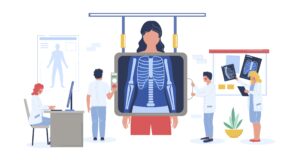 Southampton has one of the lowest uptake of screening tests in the UK. The NHS Screening Programme in the UK invites all eligible patients for bowel, cervical, breast and abdominal aortic aneurism screening tests automatically if you are registered with a GP. It is important that we have up to date contact information for you including your postal address and mobile number, as this is how the screening programme obtains your name.
Southampton has one of the lowest uptake of screening tests in the UK. The NHS Screening Programme in the UK invites all eligible patients for bowel, cervical, breast and abdominal aortic aneurism screening tests automatically if you are registered with a GP. It is important that we have up to date contact information for you including your postal address and mobile number, as this is how the screening programme obtains your name.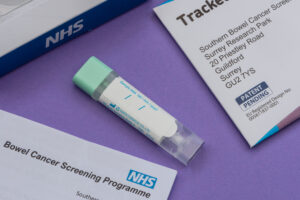 The symptoms of bowel cancer can be subtle and do not always make you feel ill.
The symptoms of bowel cancer can be subtle and do not always make you feel ill.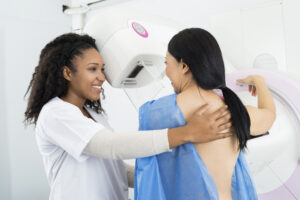 About 1 in 8 women in the UK are diagnosed with breast cancer.
About 1 in 8 women in the UK are diagnosed with breast cancer.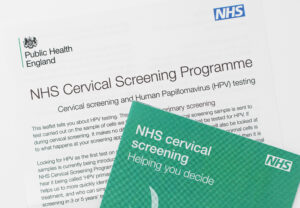 The cervical screening programme is unique in that it is not done to detect cancer growth.
The cervical screening programme is unique in that it is not done to detect cancer growth. 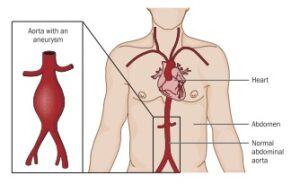 This is not a cancer screening test, but a way of checking that there is no swelling in the aorta. This is the major blood vessel that comes out of your heart full of fresh, oxygenated blood, and runs straight down to your lower body through your abdomen. A bulge in this major vessel could be extremely serious if it is not spotted early, due to its potential to eventually rupture. When this happens it is an acute medical emergency as the aorta bursting is likely to lead to fatal internal bleeding very quickly.
This is not a cancer screening test, but a way of checking that there is no swelling in the aorta. This is the major blood vessel that comes out of your heart full of fresh, oxygenated blood, and runs straight down to your lower body through your abdomen. A bulge in this major vessel could be extremely serious if it is not spotted early, due to its potential to eventually rupture. When this happens it is an acute medical emergency as the aorta bursting is likely to lead to fatal internal bleeding very quickly.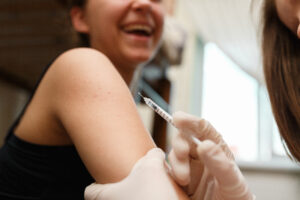 We offer the full
We offer the full  Keeping your body in good shape is a key indicator of a better quality of life. To calculate whether your weight falls into a healthy range, you can use a
Keeping your body in good shape is a key indicator of a better quality of life. To calculate whether your weight falls into a healthy range, you can use a  In Southampton, around 1 in 6 people smoke. Every patient who smokes will be offered help to stop.
In Southampton, around 1 in 6 people smoke. Every patient who smokes will be offered help to stop. Did you know that any sort of physical activity will not only increase your mental wellbeing but also reduce the risk of heart disease, stroke, high blood pressure, type 2 diabetes, osteoporosis, cancer, and general virus immunity? You might say that’s a weight off your chest! According to new research, regular exercise cuts the risk of dying from Covid-19 by more than a third.
Did you know that any sort of physical activity will not only increase your mental wellbeing but also reduce the risk of heart disease, stroke, high blood pressure, type 2 diabetes, osteoporosis, cancer, and general virus immunity? You might say that’s a weight off your chest! According to new research, regular exercise cuts the risk of dying from Covid-19 by more than a third. Current guidelines for safe limits of alcohol for both men and women are:
Current guidelines for safe limits of alcohol for both men and women are: